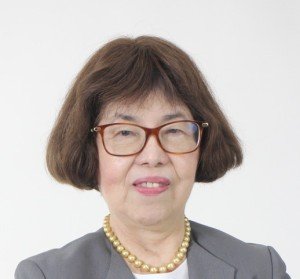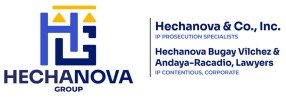Trademark prosecution issues reaching the ODG
31 March 2024

To guide both trademark practitioners and applicants in determining the registrability risk that they may face in the prosecution of their applications, the following cases may provide some enlightenment as to the nature of the cases appealed by the applicant to the Office of the Director General (ODG). The ODG either reverses the denial of the trademark applications by the Bureau of Trademarks (BOT) or affirms it. The trademark prosecution process consists of three stages within the Intellectual Property Office of the Philippines (IPOPHL): examination by the Examiner, appeal to the Director of the BOT (DBOT) in case of refusal by the Examiner, and appeal to the ODG in case the DBOT sustains the refusal of the Examiner.
Appealed Cases Affirmed by the ODG. The BOT denied the trademark applications listed below, which denial was sustained by the ODG.
1. Households & Toiletries Manufacturing Co., Ltd. v. Director of Bureau of Trademarks (DBOT),
Appeal No. 04-2021-0021, July 21, 2023, for the mark “HiGeen”
The Examiner rejected the application of Appellant Households for the trademark HiGeenon the groundthat it nearly resembles registered trademarks belonging to other registrants, and the resemblance is likely to deceive or cause confusion. Households argued that HiGeen is a coined word and has no dictionary meaning and that the overall impression on this mark negates any possibility of confusion and deception among the public. It further argued that the IPOPHL has registered phonetically similar marks covering related goods and should extend the same treatment to it, but the Examiner still refused the application. On appeal, the DBOT sustained the rejection of the Examiner and ruled that there is similarity in the main, prevalent, or essential features of the Household’s mark and the cited mark because of the usage of the word “HYGIENE”. Below is a comparison of the marks.
| Appellant Household’s Mark | Examiner Cited Marks |
|---|---|
|
Class 3, 5 Goods: non-medicated cosmetics & toiletry preparation ……. Perfumery… disinfectants, preparation for destroying vermins, etc. |
Class 5 Goods: household disinfectants, surface antimicrobial coatings, etc. Note: There was another mark cited but it was removed from the registry for failure to file a declaration of actual use. |
On appeal the ODG ruled that the term HiGeen is the dominant element of Household’s trademark and HYGIENE is the dominant feature of the registered mark. Quoting the IP Code, the ODG stated that “a certificate of registration is prima facie evidence of the validity of the registration, the registrant’s ownership of the mark and of the registrant’s exclusive right to use the same in connection with the goods or services and those that are related thereto specified in the certificate. The Appellant cannot, therefore, be allowed to register a mark with a dominant feature similar to the existing registered mark cited by the Examiner and use on related goods.” On the issue of registrations issued by the IPOPHL for similar marks for similar classes of goods, the ODG held that the case is about the Appellant’s mark and not the other registered marks, hence, said argument deserves scant consideration. Appeal dismissed.
2. Amity Global Integrated Ventures Inc. v. DBOT, Appeal No. 04-2021-0026, July 21, 2023
Trademark:
Appellant,Amity Global Integrate Ventures Inc.,filed a trademark application for the registration of MONSTER MILKSHAKE. The Examiner refused the application, saying that MONSTER MILKSHAKE cannot be registered as it nearly resembles a registered mark belonging to a different proprietor and the resemblance is likely to deceive or cause confusion. Amity appealed to the DBOT who sustained the rejection of the Examiner. Below is a side-by-side comparison of the marks:

In the instant case, the subject mark covers ice cream shakes, ice cream milkshakes, ice cream beverages, and ice cream and milk beverages, while the goods of the cited mark are dairy-based beverages and milk beverages, coffee, chocolate and/or fruit juices; shakes. The ODG ruled that although the goods may not be competing, they are related enough to produce confusion or affiliation. There is, therefore, confusion of business and with this, the public may be deceived that there is some connection between the two parties though inexistent. The addition of the word “MILSHAKE” is immaterial to the overall impression of the trademark. Applying the dominancy test, the subject mark and the cited mark nearly resemble each other in appearance, sound, and commercial impression because of the dominant feature – the word “MONSTER”. Admittedly, the main and essential feature of the Appellant’s mark is pronounced and spelled in exactly the same way as the mark cited by the Examiner. This will indubitably result in confusion of origin. Appeal dismissed.
3. Wei Hao Guo v. Lazada South East Asia PTE Ltd., Appeal No. 14-2021-0016 July 25, 2023
Trademark:
Most of the appealed cases to the ODG deal with confusing similarity. In this case, the issue is procedural. While the IPOPHL adopts a liberal position on technical rules, it is quite strict when appeal dates are missed as shown in the above case. In this case, the Adjudication Officer sustained the opposition, and under the Rules of Inter Partes Proceedings, Guo had 10 days to submit its Memorandum of Appeal to the Bureau of Legal Affairs (BLA) director, but allowed for extension based on meritorious grounds. Guo claimed that he filed the appeal on time stating that he received the decision of the Adjudication Officer on September 21, 2020, and filed the appeal on October 1, 2020, but did not receive the Statement of Account to make the payment, so he filed a motion for its issuance. The BLA immediately issued the Statement of Account and gave the link for the payment.
Guo, however, just insisted that he filed the appeal on time but was not able to pay the appeal fees because he has not received any statement of account and the payment link for the online payment. The ODG sustained the ruling of the Director and held that even if he agrees to the claim that Guo filed its appeal on time, he failed to submit convincing evidence that he did not receive the Statement of Account and the payment link, but only gave his self-serving statement that he did not receive the same.” Appeal dismissed.
Appealed Cases Reversed by the ODG. The BOT denied the trademark applications listed below, which denial was reversed by the ODG.
4. Advance Sentry Corporation v. DOBT, Appeal No. 4-2-21-010029, February 14, 2023
Trademark: NP SCREEN
Appellant, Advance Sentry Corp., filed its application for the trademark NP SCREEN for goods and services in Classes 10 and 42, e.g., medical diagnostic implements and reagents … development and research of diagnostic cancer screening and prognostic tests. The Examiner refused the application claiming that it cannot be registered because it consists exclusively of signs or of indications that may serve in trade to designate the kind, nature, quality, intended purpose or other characteristics of the goods or services. On appeal, the DOBT sustained the refusal of the Examiner ruling that NP SCREEN is descriptive and that NP is a common abbreviation in online medical resources referring to nasopharyngeal swab. The Director ruled that NP SCREEN neither creates a unique meaning nor evokes distinctive characteristics of its medical services but simply conveys the message that their services involve diagnostic center screening/test. Advance Sentry countered that NP accepts many meanings in the medical field, and the goods covered by its application do not include “the screening or testing of the nasopharynx for diseases, and that its mark is not descriptive but only suggestive, and that it has registrations in various territories.”
The ODG, on appeal, reversed the DOBT and held that the mark NP SCREEN is only suggestive and explained that a suggestive term refers to those which require imagination, thought and perception to reach a conclusion as to the nature of the goods. The ODG further stated that the terms “NP” in Cambridge dictionary means “nurse practitioner” while the term “SCREEN” means to test or examine something someone to discover if anything is wrong with him her or it, that in this case while NP SCREEN may shed some light in the products covered by the mark, still the persons seeing this mark need to imagine and exert their imaginative effort to identify the goods or services associated with it.
5. Republic Cement & Building Materials, Inc. v. DOBT, Appeal No. 04-2023-0004, December 19, 2023
Trademark:
The Examiner refused the mark of the Appellant Republic “with I was-CRACK ENHANCERS & Device” (“iwascrack”) for use on cement in Class 19, because it is descriptive or consisting exclusively of signs or of indications that may serve in trade to designate the kind, nature, quality, intended purpose or other characteristics of the goods or services and asked the applicant to disclaim the term “CRACK ENHANCERS”. Republic argued that its mark is a coined and coloured composite mark, and that the combination of its elements is arbitrary. Republic further argued that “iwas” is a Tagalog word, and that the rest of the words are in English and not used in ordinary or daily conversation and not referring to any product or service. On appeal, the DOBT sustained the refusal of the Examiner and held that the words in Republic’s mark refer precisely to the qualities or key features of the goods cement – not prone to cracking – hence, not suggestive, but descriptive. Dissatisfied Republic appealed to the ODG which held that “iwascrack” does not consist exclusively of signs and indications that designate the kind or quality and other characteristics of Republic’s goods. Further, Republic had already secured registration for the mark “WITH IWAS-CRACK ENHANCERS for use in cement, and that it is inconsistent for the BOT to suddenly rule that Republic’s mark, consisting of the same words but enclosed in an oval-shaped figure with yellow background, is descriptive.










